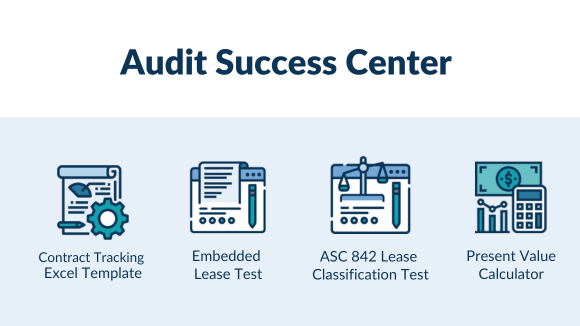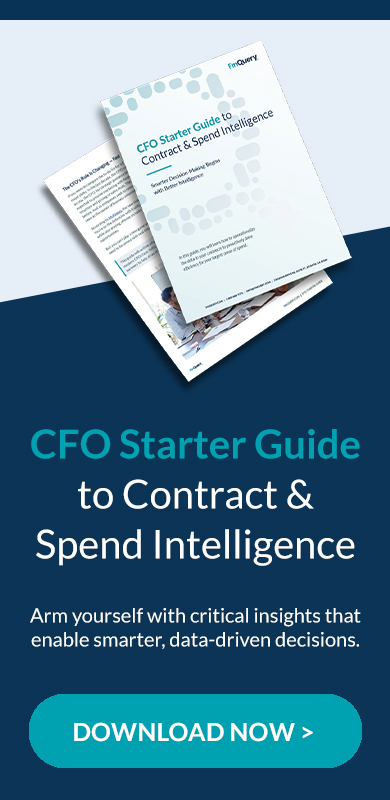Contract negotiation is a critical process for any organization, as it directly impacts both operational efficiency and financial performance. Contracts form the foundation of business relationships, outlining the terms and conditions that govern transactions and partnerships. However, the true value of a contract lies not just in its existence, but in the effective negotiation of its terms. Here, we present ten essential tips to help you excel in this essential skill for business.
1. Preparation is key
Thorough preparation sets the stage for successful contract negotiations. Understand the terms, conditions, and objectives of both parties. Set clear goals, identify non-negotiables, and anticipate resource needs. This groundwork ensures you enter negotiations well-equipped and confident.
Tip: FinQuery Contract Management offers a central repository for all your contract-related documents, making it easier to find the information you need to thoroughly prepare.
2. Develop a strategic plan
Craft a negotiation strategy that aligns with your desired outcomes and priorities. Consider the goals of the other party, leverage points, and available alternatives. A well-thought-out strategy provides direction and enhances your ability to negotiate effectively.
Tip: With contract and spend intelligence from FinQuery, you can operationalize the data in your contracts to drive efficiency in your largest areas of spend.
3. Build rapport and trust
Fostering a positive and collaborative atmosphere is essential. Building trust and rapport with the other party can lead to more productive negotiations and mutually beneficial agreements. Approach discussions with a mindset of cooperation rather than confrontation.
4. Be flexible
Flexibility is essential in contract negotiations. Be open to compromise and explore creative solutions that meet the needs of both parties. Flexibility paves the way for win-win scenarios, enhancing the overall value of the agreement.
5. Focus on value creation
Rather than solely aiming for individual gains, seek opportunities to create mutual value. Identifying and leveraging areas of common interest can lead to agreements that benefit both parties, creating a win-win scenario and fostering long-term positive relationships.
6. Know your BATNA
Understanding your Best Alternative to a Negotiated Agreement (BATNA) is critical. It represents your best course of action if the negotiation fails. Knowing your BATNA empowers you to make informed decisions and establish a walk-away point, ensuring you don’t settle for unfavorable terms.
7. Practice active listening
Active listening is a powerful negotiation tool. It involves fully comprehending the perspectives and concerns of the other party. By using this skill, you build trust, facilitate collaborative problem-solving, and uncover valuable insights that can shape the negotiation. The concept of active listening is likely something you do already; when you’re interested in what the other party is saying. Active listening can be put into practice by doing the following:
- Be attentive – Be 100% present on the call or during negotiations by removing distractions, turning your phone on “do not disturb”, etc.
- Ask open ended questions – Inquire about the other party’s objectives, challenges or vision for the future of the relationship
- Investigate – Ask probing questions to learn details about what is important to your counterpart
- Clarify – Check-in often with the other party to ensure you understand critical information
- Paraphrase – Reiterate key points back to the other party throughout the process as a way to acknowledge your comprehension
- Empathize – Express to your counterpart that you are attuned to their perspective and what they are feeling
- Summarize – Succinctly recap key data and agreed upon points to show your understanding
8. Utilize the anchoring technique
The anchoring technique leverages the common human tendency to rely heavily on the first piece of information (the “anchor”) when making decisions. In the context of negotiations, the first offer or proposal sets the “anchor,” and subsequent negotiations are often influenced by this initial figure, even if it’s arbitrary. Establishing a strong anchor helps shape perceptions of value and can lead to more favorable outcomes. However, ensure your anchor is reasonable to maintain credibility.
9. Employ the principle of reciprocity
The principle of reciprocity suggests that individuals are more likely to make concessions when they receive something of value. By offering something beneficial, you can encourage cooperation and prompt reciprocal gestures, leading to a more balanced agreement.
10. Conduct thorough due diligence
Thorough due diligence is indispensable for uncovering potential risks and avoiding costly mistakes. Engage experts and seek legal advice to ensure you have a comprehensive understanding of the contract’s implications. Due diligence enhances your negotiating position and safeguards your interests.
Tip: FinQuery Contract Management provides one place for all your contract-related documents, simplifying the due diligence process and ensuring nothing is overlooked.
Conclusion
Mastering contract negotiation is not just about getting the best deal—it’s about building strong, lasting partnerships that drive financial success. By following these ten essential tips and leveraging FinQuery for contract and spend intelligence, you can enhance your negotiation skills and achieve better outcomes for your organization.










